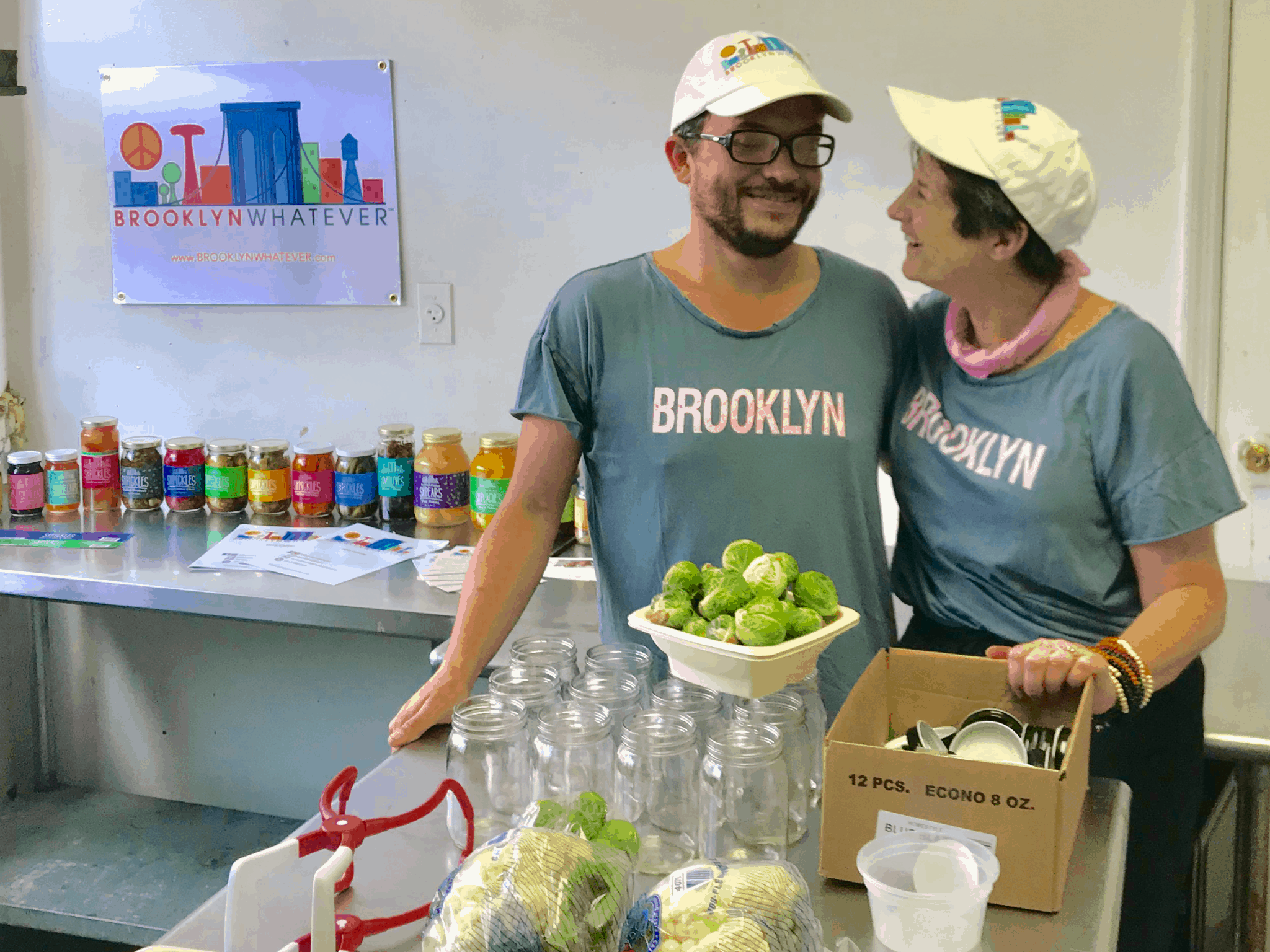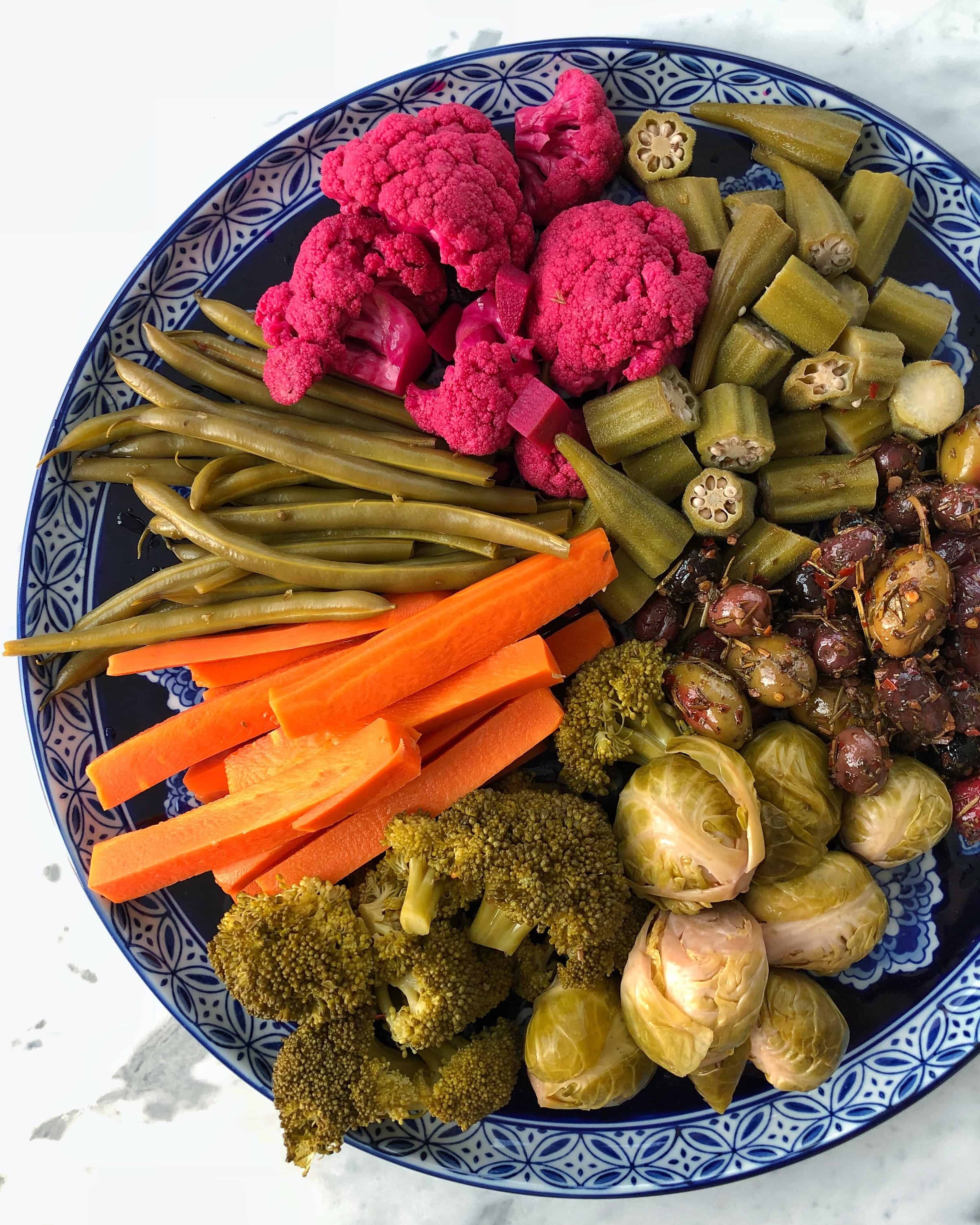Pickles are one of those condiments that you either love or hate. Brooklyn Whatever, a Flatbush-based pickling company, does pickling differently. For starters, they do not sell pickles – instead they pickle every other kind of vegetable you can imagine. Beets, string beans and carrots are just a few. To stand out from the crowd, their lines of products all start with “sh”; try saying shpickles, shmolives and shnuts 10 times fast without having a small shmile on your face.
Rachel Shamah, 61, founded the business with her son Abe four years ago. Rachel had already retired from her career of being an advocate for children with disabilities, when her son suddenly lost his job.
She was in a yoga class one day when the name “Shpickles” came to her – her last name that would be combined with a food. She wanted to make super healthy pickles, but not cucumbers like everybody else. So Rachel asked her son, a certified chef, if he’d like to go into business together.
“I’ll never forget the day actually,” she said. “I asked him, ‘Why don’t we pickle?’ and he said, ‘Are you out of your freakin’ mind? To do this with you?’ I said, ‘Honey, you have to trust me on this. It’s such a dumb name, but who would forget it?’”

With Abe’s expertise as a chef, the duo then came up with a Mediterranean-based family recipe using vinegar, fresh garlic, salt, herbs and spices.
“And we don’t use any dill in any of our vegetables. We use a different herb, but that’s our secret,” she said with a laugh.
They then trademarked their business name, Brooklyn Whatever (named for whatever they would be making in the future) and began experimenting. For two years Rachel and Abe made sugar-free/certified vegan pickled broccoli, okra, cauliflower, mixed olives and more in an incubator kitchen located in Industry City and pasteurized the products. They labelled the products and sold them at food markets and street fairs throughout the boroughs.
ALL IN THE FAMILY
Today Rachel runs the business and handles sales, while Abe runs warehousing and production in a Coney Island warehouse. She said that running a family business comes with its own challenges. It took Rachel and Abe awhile to come to grips with the new relationship.
“If we weren’t partners, I’d have all the confidence that he could go out there and make it on his own,” Rachel said.
Being in a family business has had its benefits.
“We love each other as mother and son, but it has grown into a relationship with respect and admiration in trying to make this business work and really having the same focus,” Rachel said. “Our relationship has really blossomed.”
She added that the rest of the family is also involved. Rachel taught her three kids how to cook in their teens, feeling it was an important skill to learn as they got older. Abe and his father Eddie also currently bond in the kitchen by cooking and coming up with new food ideas for the business.
WHERE ARE THEY?
While Brooklyn Whatever doesn’t showcase its products at street fairs as much anymore, they now participate in trade shows at the Javitz Center. Plus, people can pick up shpickles and other shnacks at their local supermarkets and maybe even see a team member give a store demo.
The company has landed accounts with The Fresh Market, Wegmans and Stop & Shop – who just bought all their shpreads (apple butter, cherry jalapeño, hot pepper, jalapeño, blueberry, peppery peach and raspberry jams) in March. Their products can also be found in the 1 Hotel Brooklyn Bridge, located at Pier 1 on Brooklyn Bridge Park. And, as of mid-April, Rachel was negotiating with other major hotels located in Manhattan.
The Brussels sprouts have been their best-selling product, according to Rachel. She also said customers love the mixed veggies, pickled watermelon rinds and cinnamon apples (with includes a large cinnamon stick in each jar). With summer just around the corner, non-pickled peach halves are trending. Abe, who was known as the “Olive King” during culinary school, created a unique recipe for their shmolives, which are a specialty item because they’re made with very limited brine.
With success comes lots of experimenting and failures along the way. Rachel said they’ve gone through a large upheaval in the last six months, finding that their habanera ketchup, mustard, sauerkrauts and asparagus weren’t popular enough for mass production.
To learn more about Brooklyn Whatever and its products, visit brooklynwhatever.com or follow them on Instagram @brooklynwhatever.
Top photo courtesy of Brooklyn Whatever
Author
-

George Fiala has worked in radio, newspapers and direct marketing his whole life, except for when he was a vendor at Shea Stadium, pizza and cheesesteak maker in Lancaster, PA, and an occasional comic book dealer. He studied English and drinking in college, international relations at the New School, and in his spare time plays drums and fixes pinball machines.
View all posts
George Fiala has worked in radio, newspapers and direct marketing his whole life, except for when he was a vendor at Shea Stadium, pizza and cheesesteak maker in Lancaster, PA, and an occasional comic book dealer. He studied English and drinking in college, international relations at the New School, and in his spare time plays drums and fixes pinball machines.










